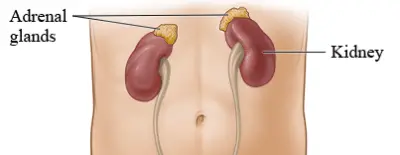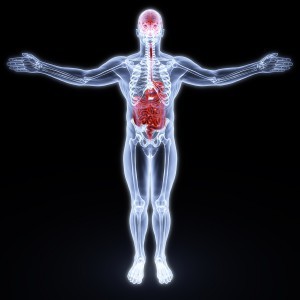Adrenal fatigue is a lesser known syndrome that has similar symptoms to major depression. Some experts believe adrenal fatigue is misdiagnosed as depression often. It’s important to understand the differences because the treatment for adrenal fatigue does not require medication. It simply requires some changes to diet, time and sleep to rest and repair the adrenal glands. Read on for more information….
Is it adrenal fatigue or depression?
What is Adrenal Fatigue?
A syndrome that’s similar to major depression in many ways. It occurs when the adrenal glands begin to function below the necessary level. This is often a result of prolonged stress and the way it puts pressure on the cells and systems of the body, and in this case, the adrenal glands, which are located above the kidneys.
As the name of the syndrome suggests, extreme sleepiness is a prime symptom. This lack of energy disable an individual’s level to function physically and mentally. Many people report feeling sleepy, depressed, and physically unable to do what they used to do. In extreme cases, a sufferer will have trouble getting out of bed for more than a few hours. 
With this malfunction at the adrenal level other systems are put under pressure. Common additional symptoms are changes in hunger and weight, fluid and electrolyte imbalance and lowered sex drive.
What causes adrenal fatigue?
The adrenal glands in your body sit on top of your kidney’s and they mobilize during stress. they secrete a hormone that manages your energy levels, immune system, and heart rate. When they undergo too much stress and for too long, they can’t keep up. The end result is an experience of adrenal fatigue.
During adrenal fatigue the glands still do function but not well enough.
Symptoms of adrenal fatigue:
- Tired for no reason.
- Trouble getting out of bed in the morning even if they’ve slept at least 6-10 hours.
- Feeling overwhelmed and stressed.
- Have trouble dealing with stress.
- Craving salty and sweet food.
- Feeling more awake after 6PM.
How is adrenal fatigue diagnosed?
Even though adrenal fatigue has been around for many years, it is less discussed and understood among doctors of Western medicine than doctors who use natural remedies. You’re loved one may need to see a naturopathic doctor for a diagnosis.
Physicians will use a simple saliva test, commonly known as the Cortisol/DHEAS Saliva Test, to measure the level of the stress hormones DHEAS and cortisol in a patient’s saliva.
Treatment for adrenal fatigue
Dietary changes, natural supplement, sleep and time are all the is needed to repair the adrenals to their optimum levels of function and get your loved one back to health.
Additional resource to check out for more information is the book: Adrenal Fatigue: The 21st Century Stress Syndrome™ by Dr. James L. Wilson
Love this article? All the information you need is in this self-guided online course. For more information click on the button below:

 I learned about the connection in 2008. I was taking a low dose of an antidepressant (prescribed to me during my teen years) that I was trying to wean off of, and went to see a naturopathic doctor.
I learned about the connection in 2008. I was taking a low dose of an antidepressant (prescribed to me during my teen years) that I was trying to wean off of, and went to see a naturopathic doctor.